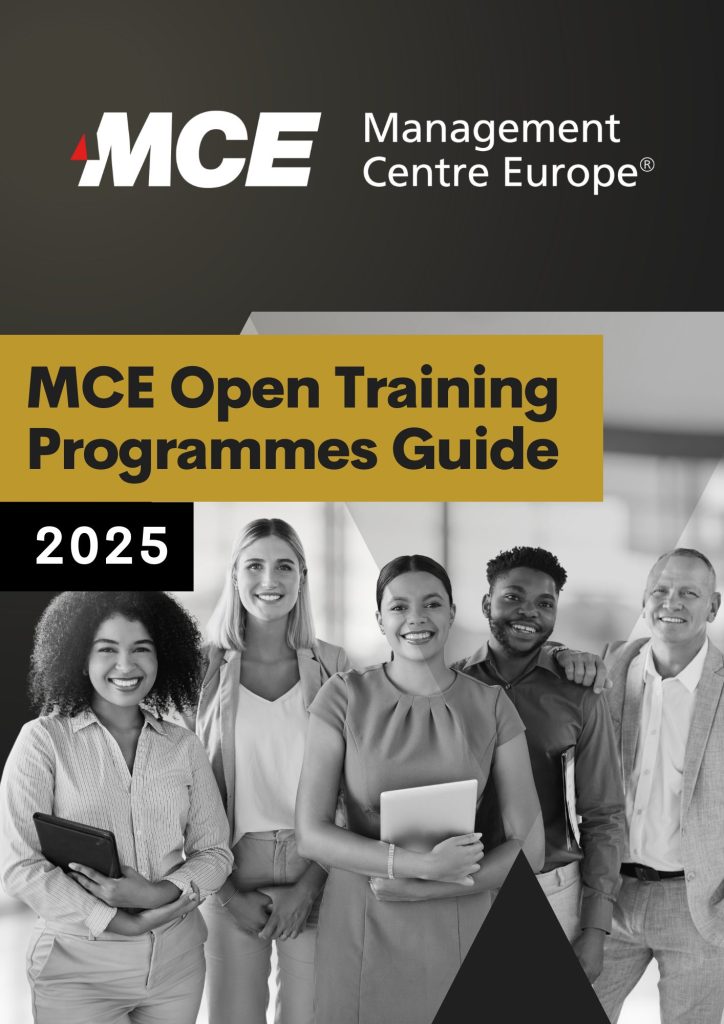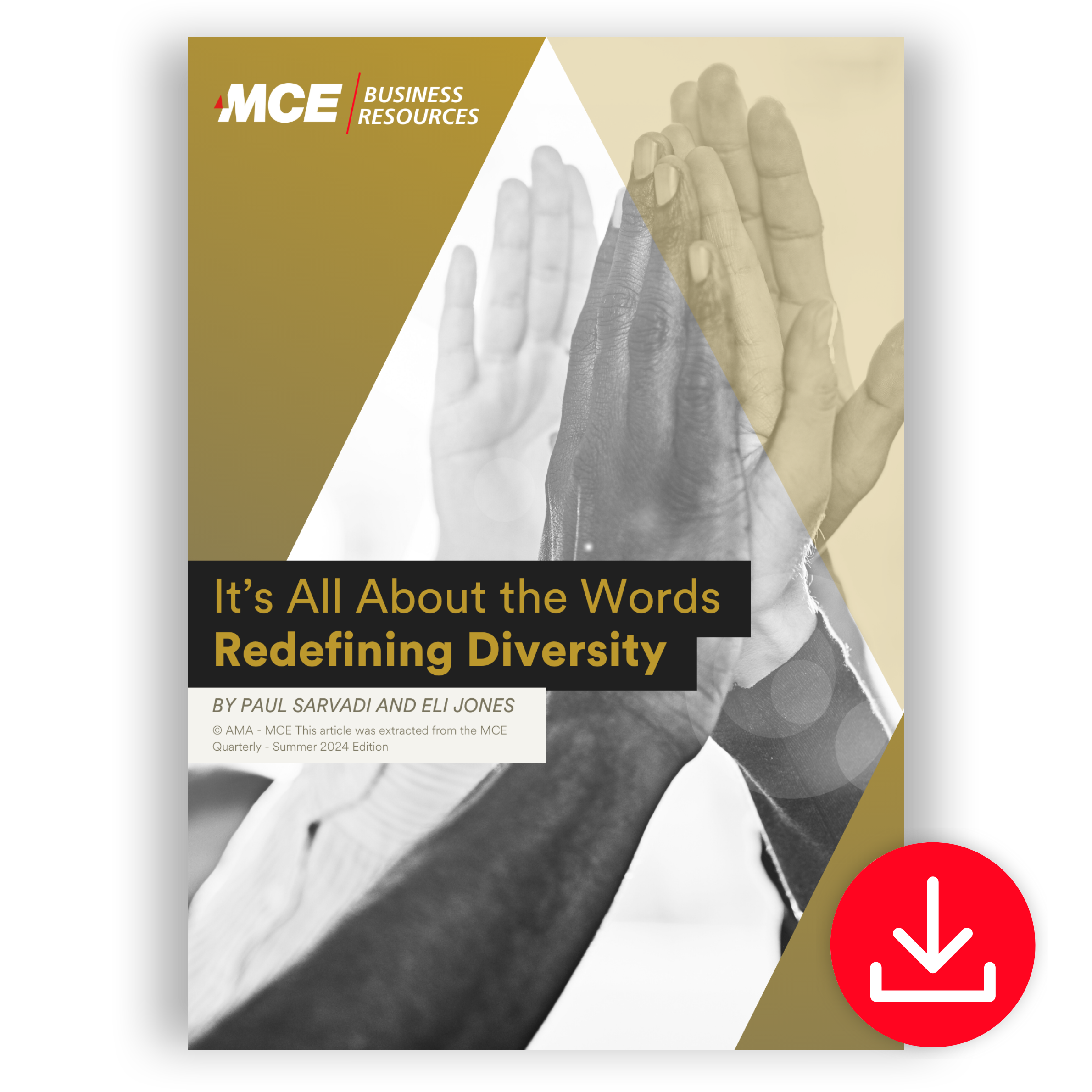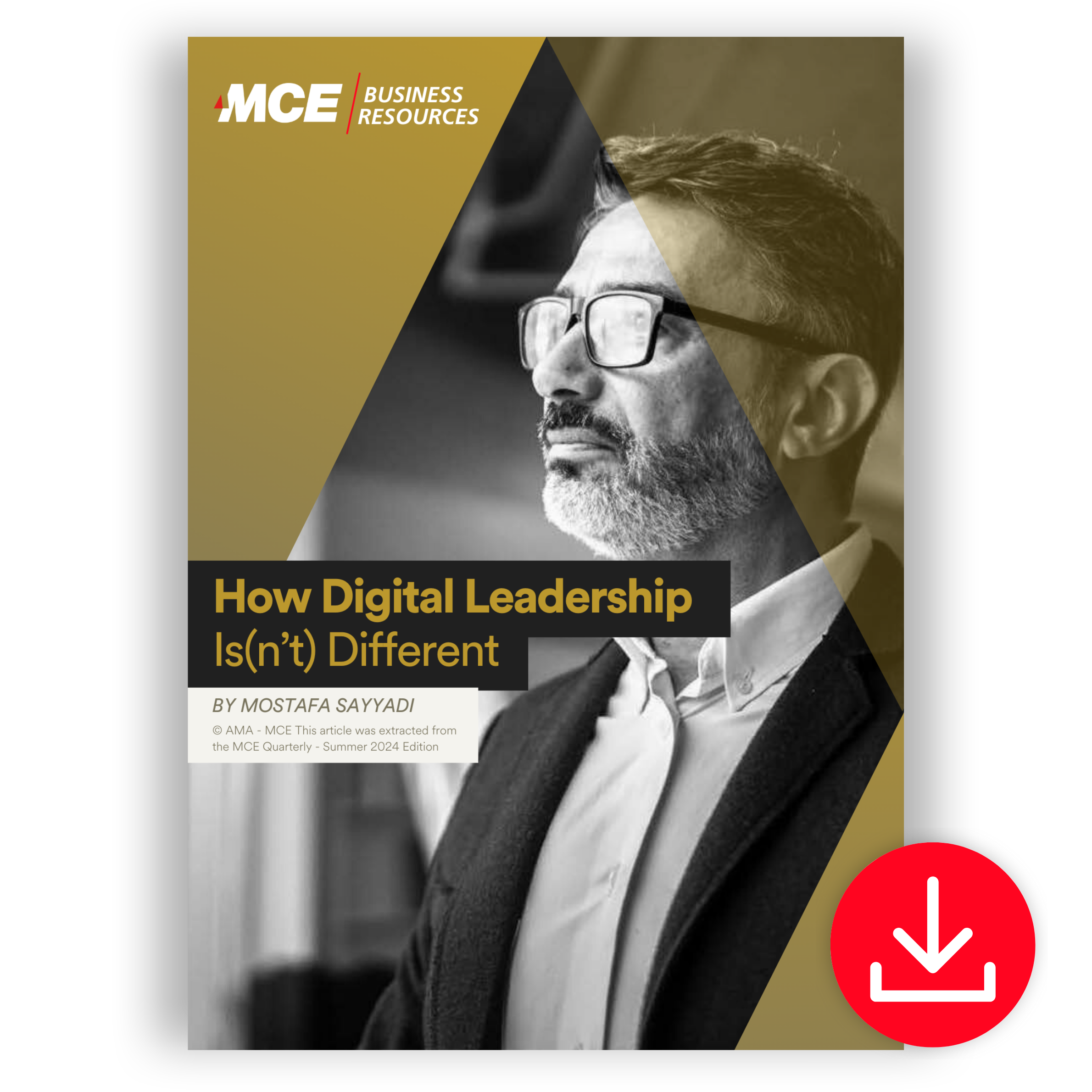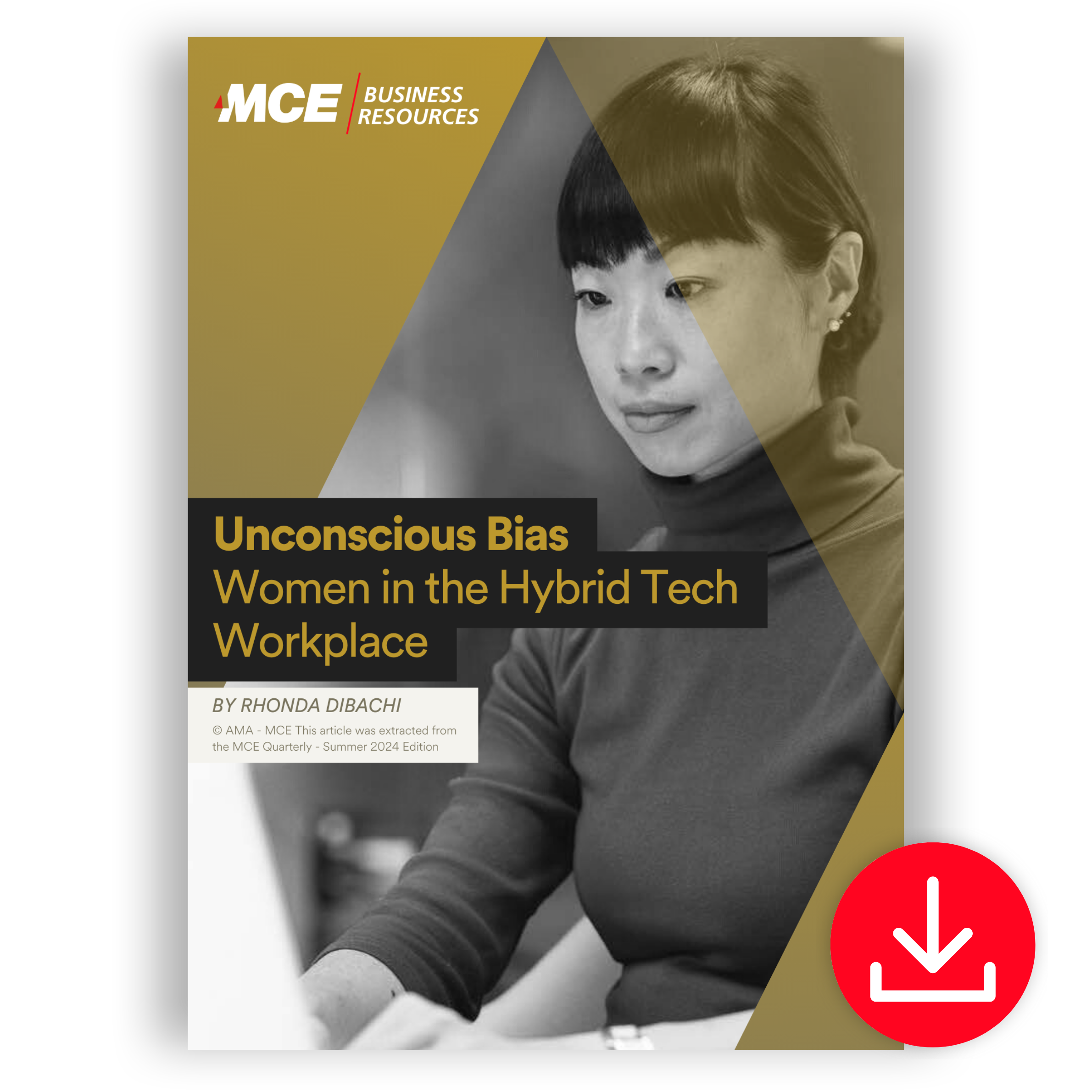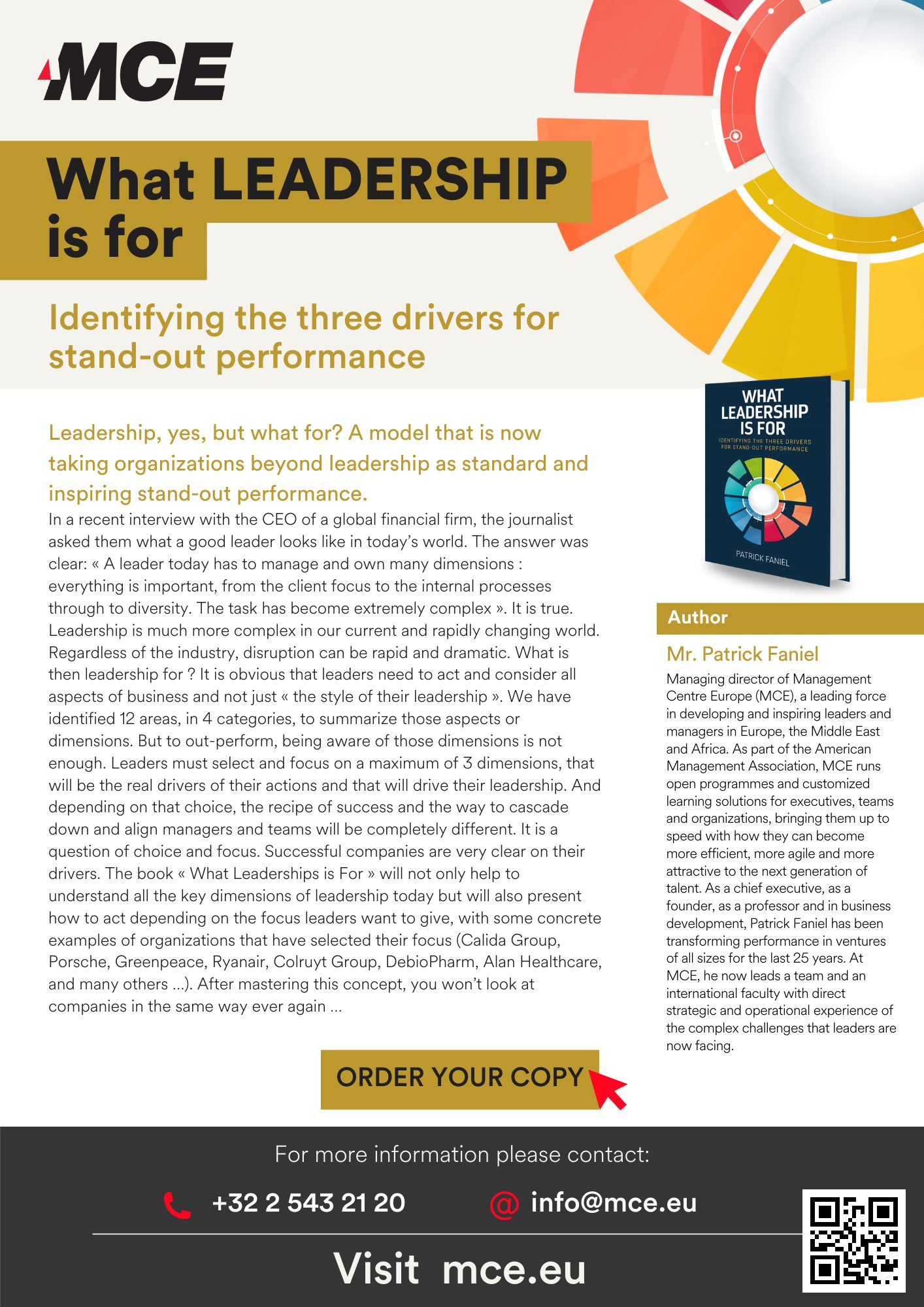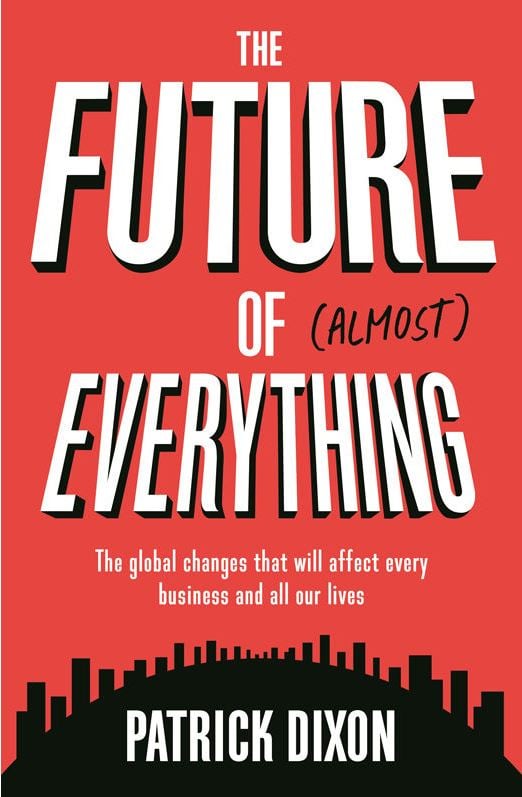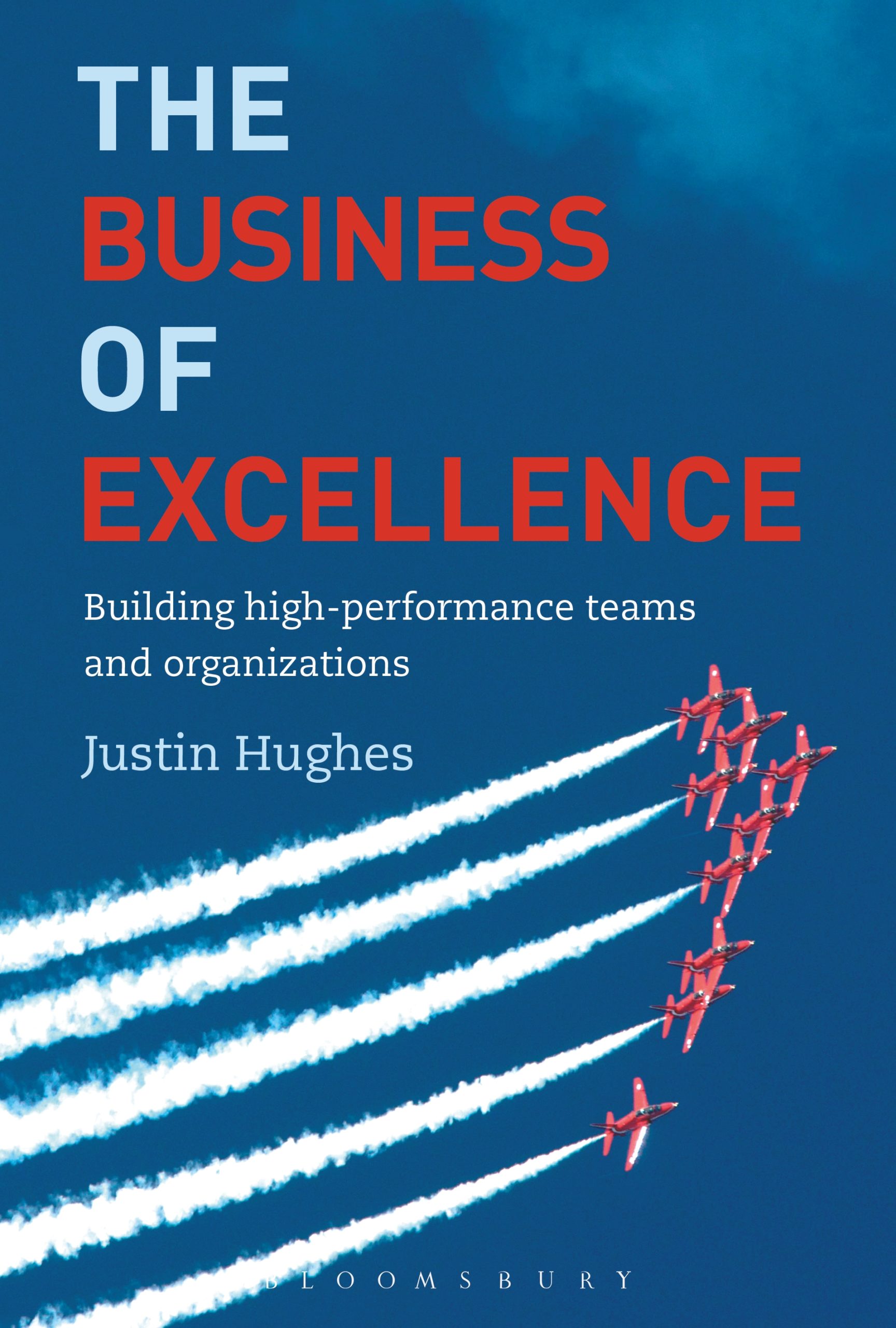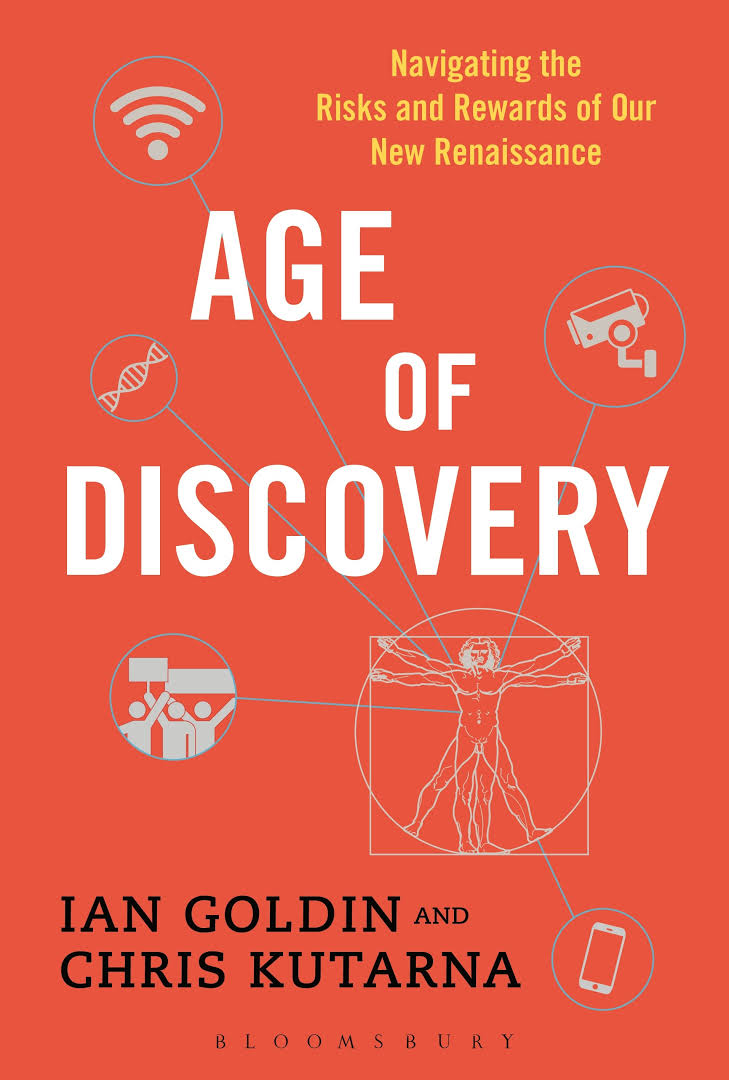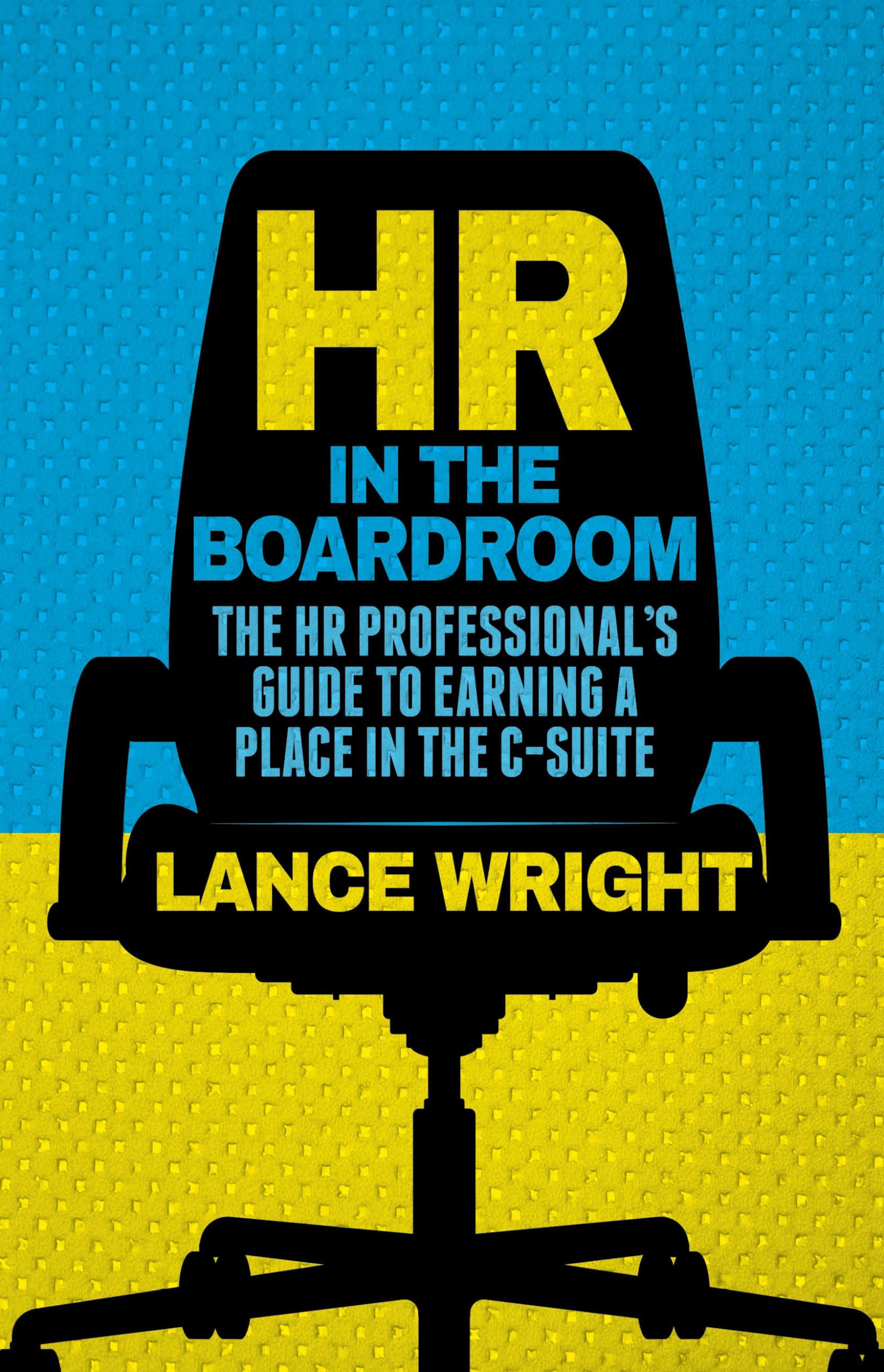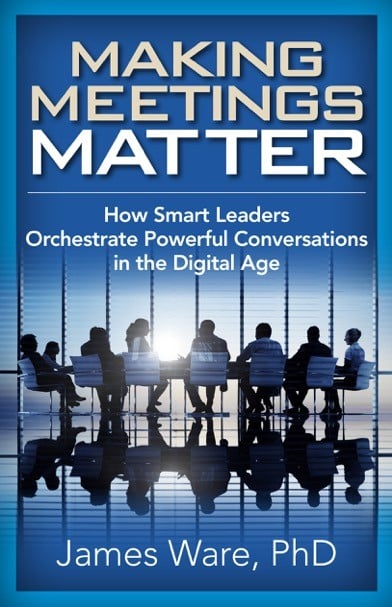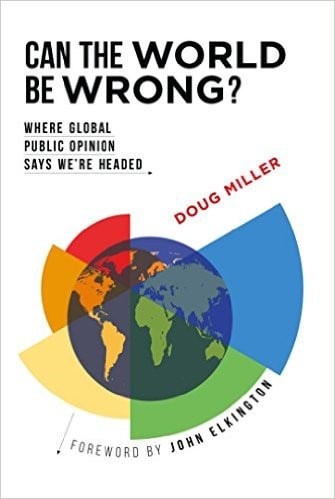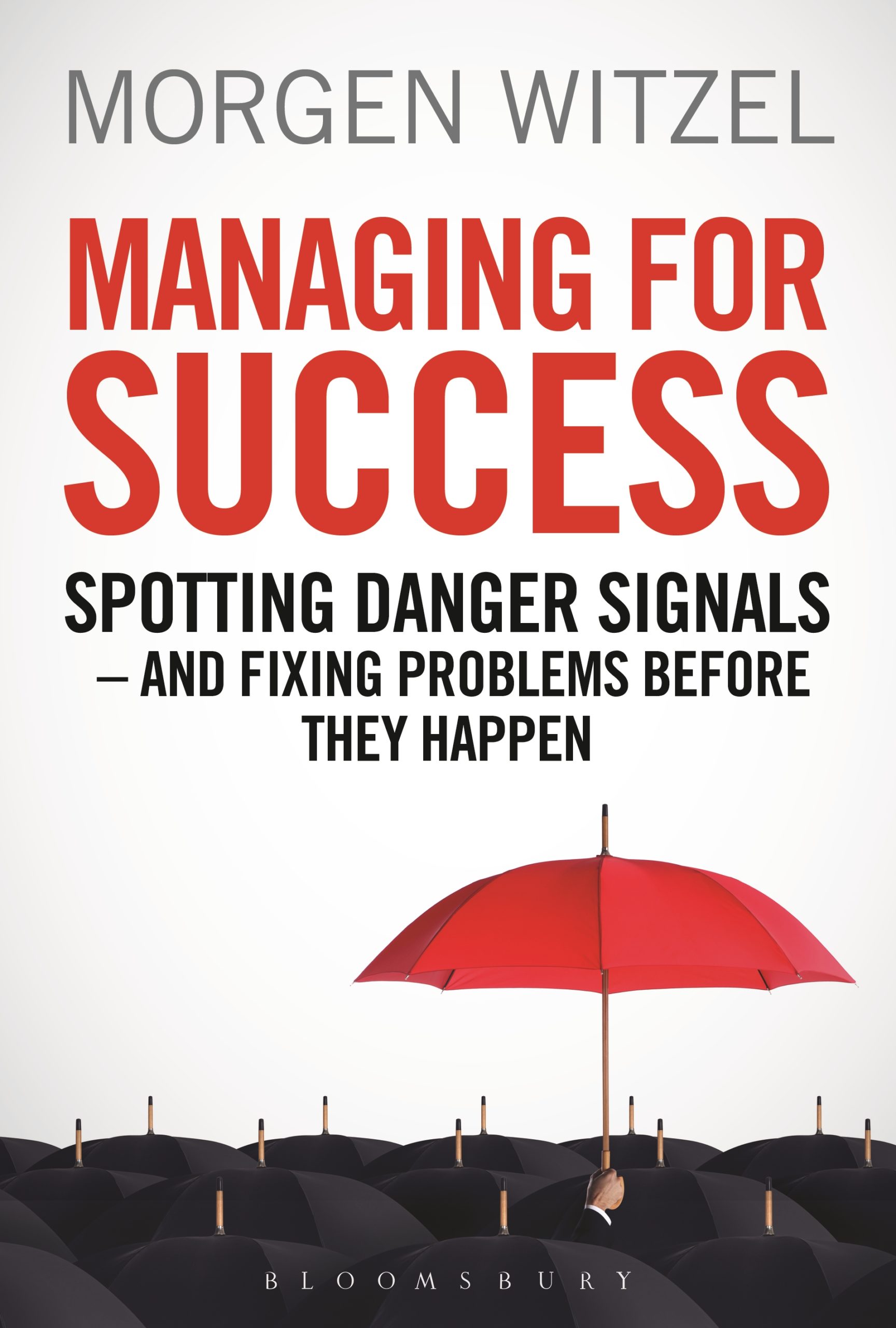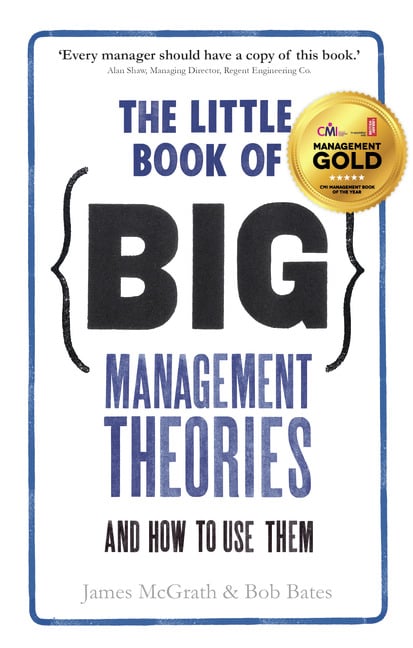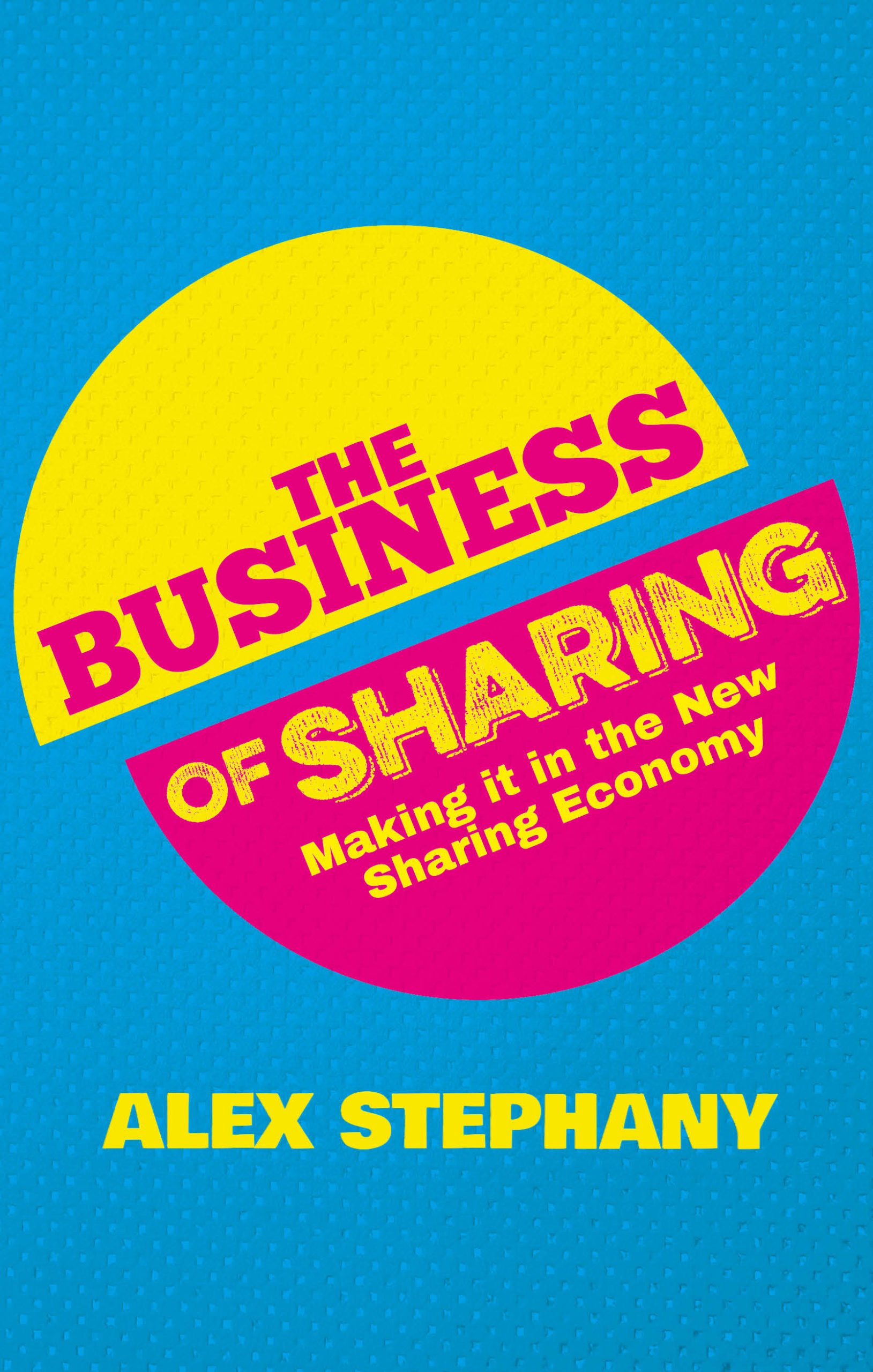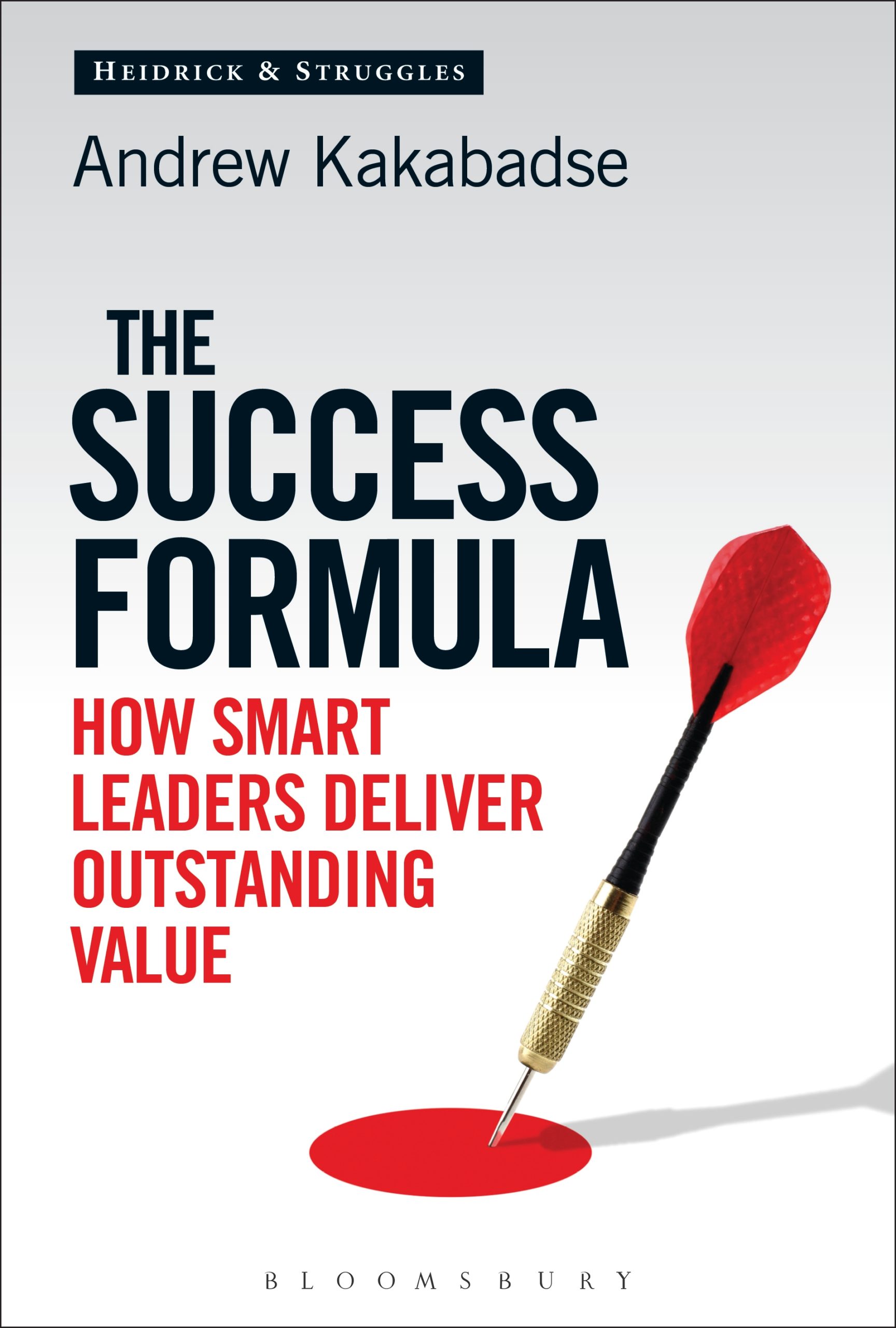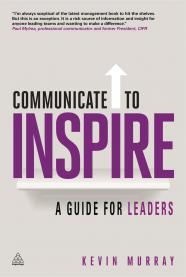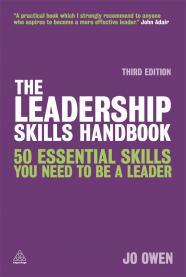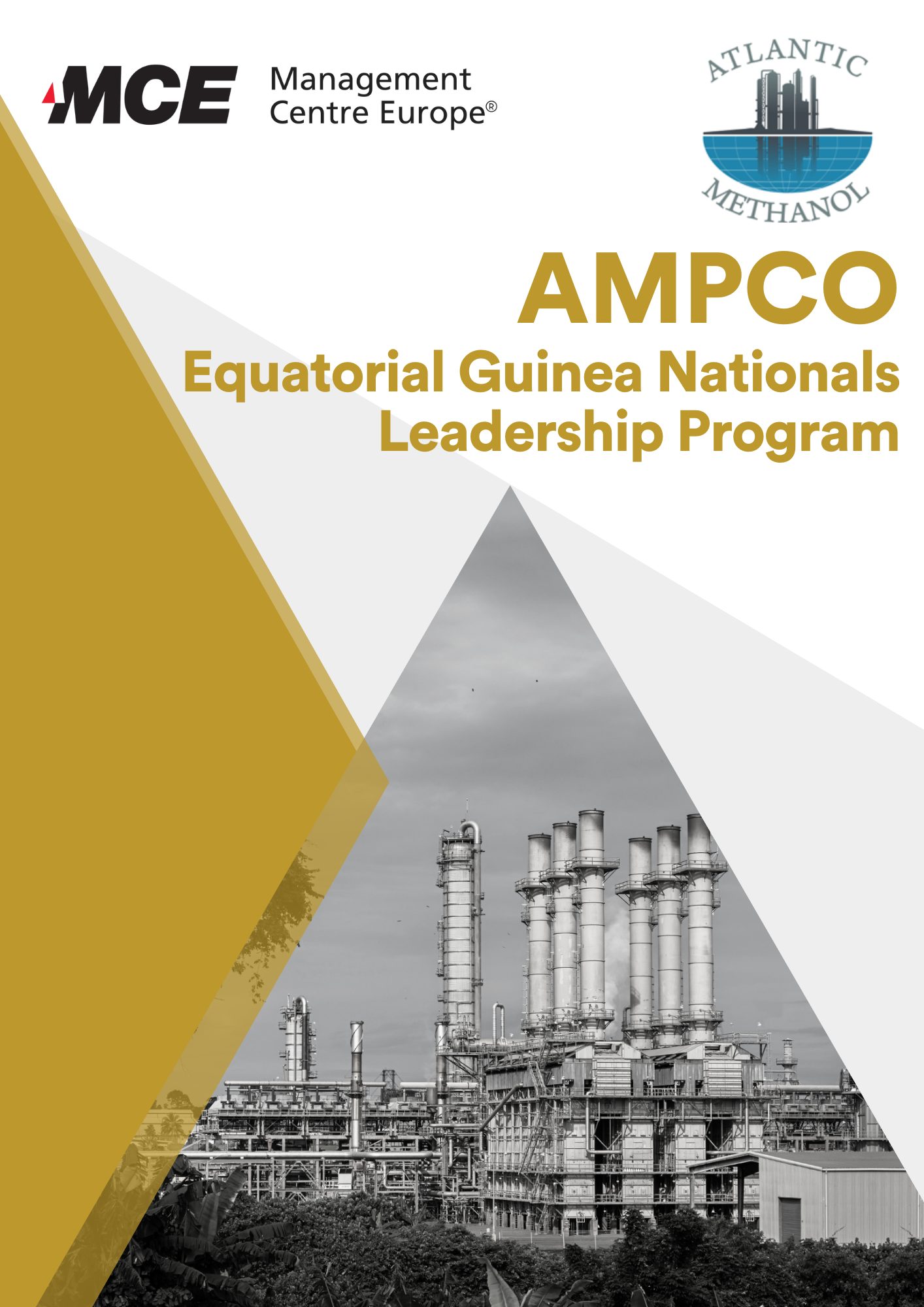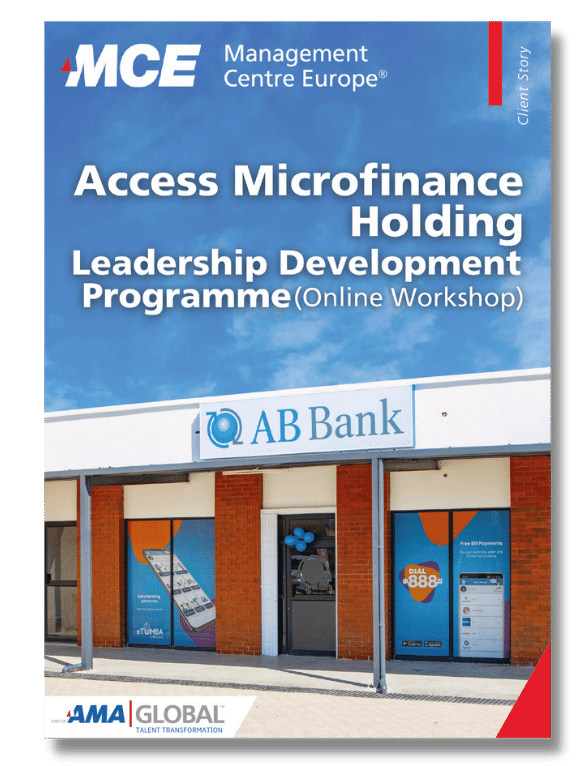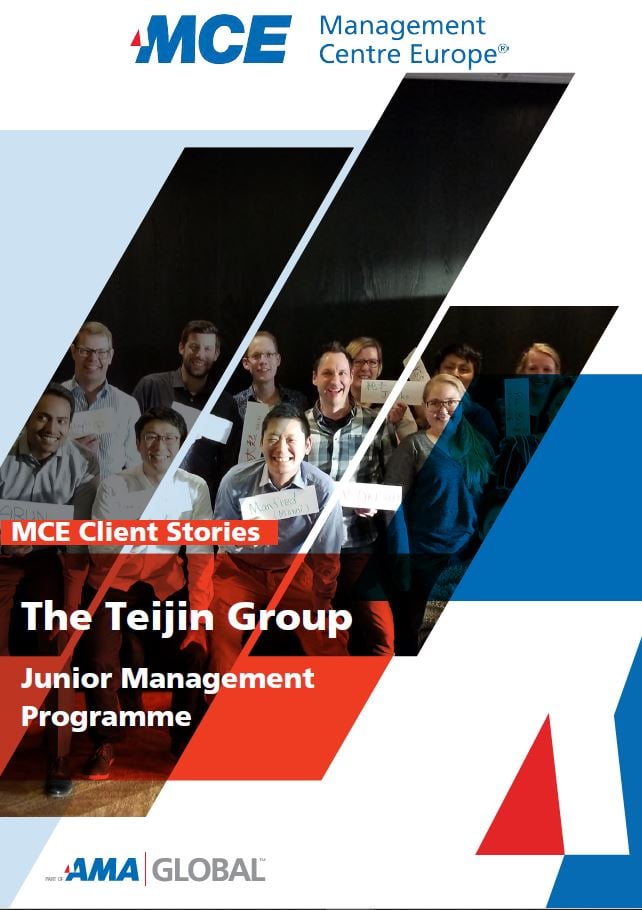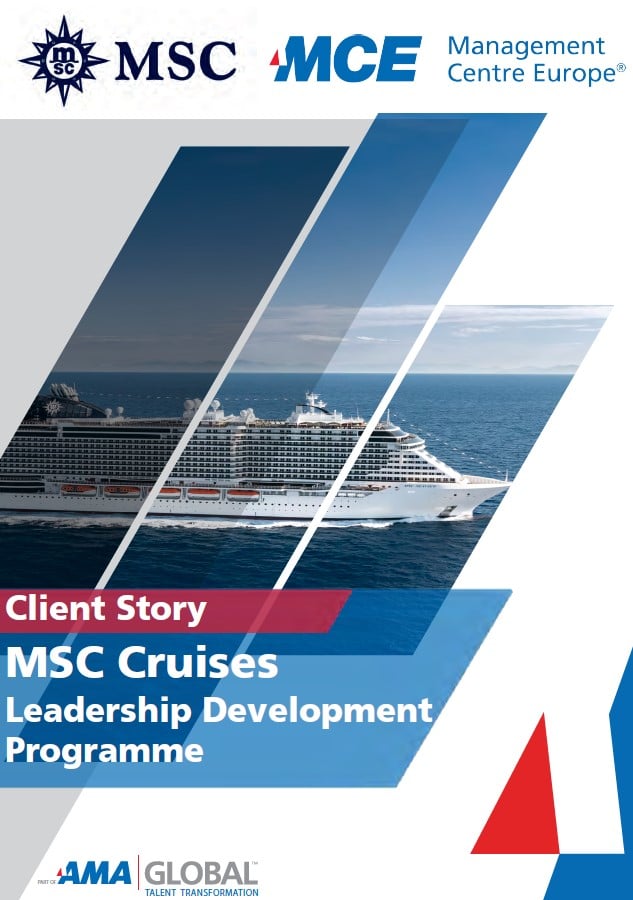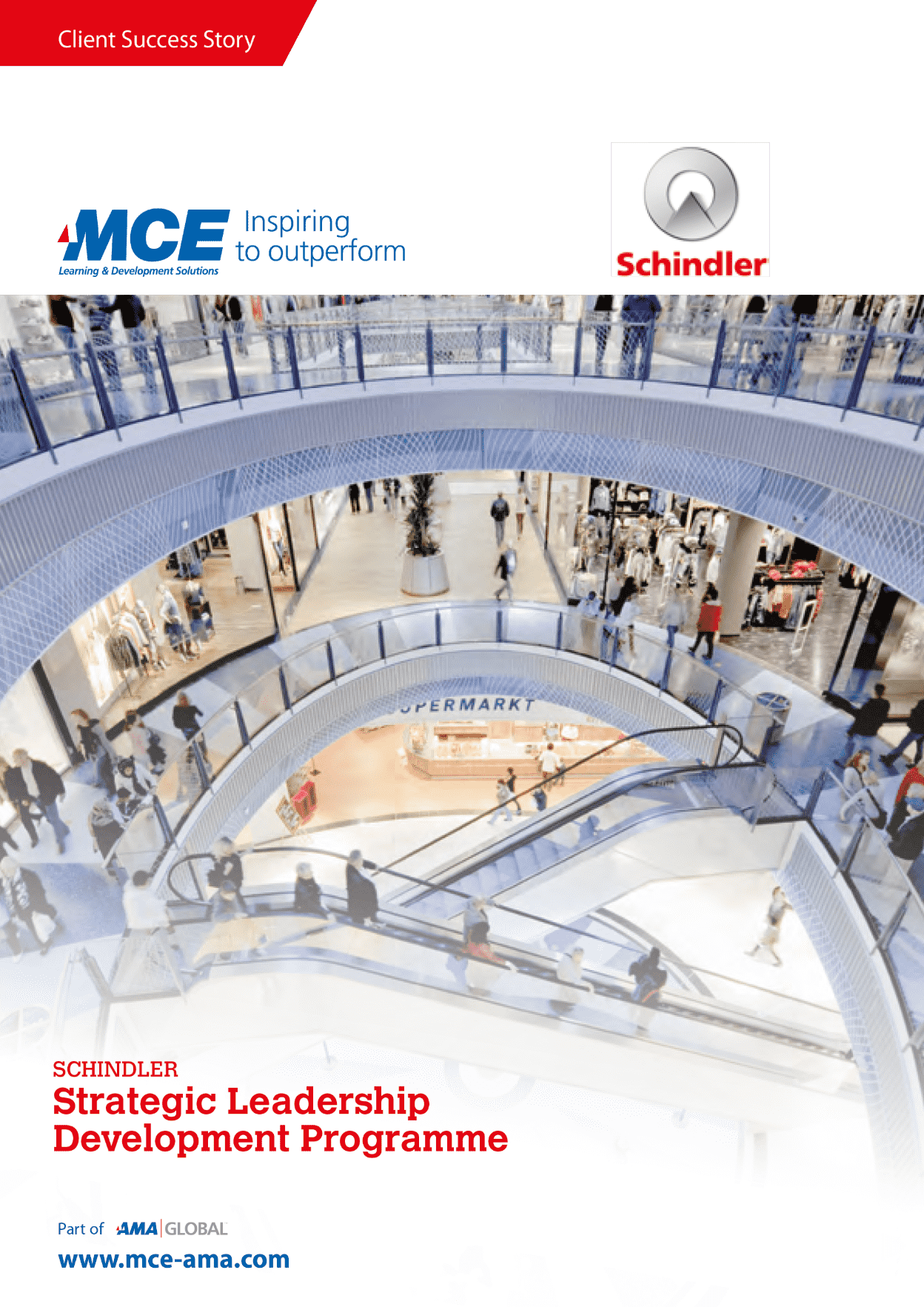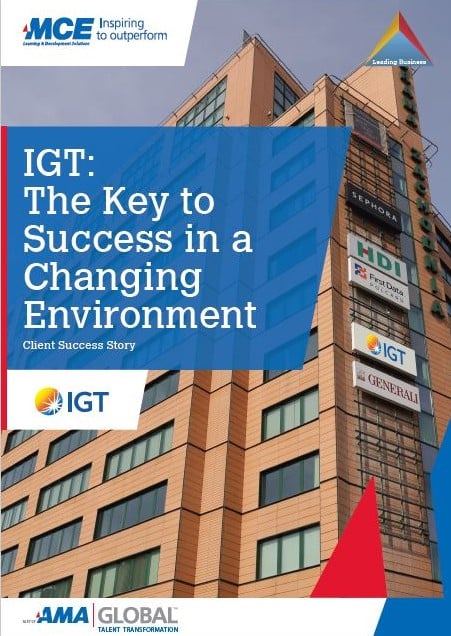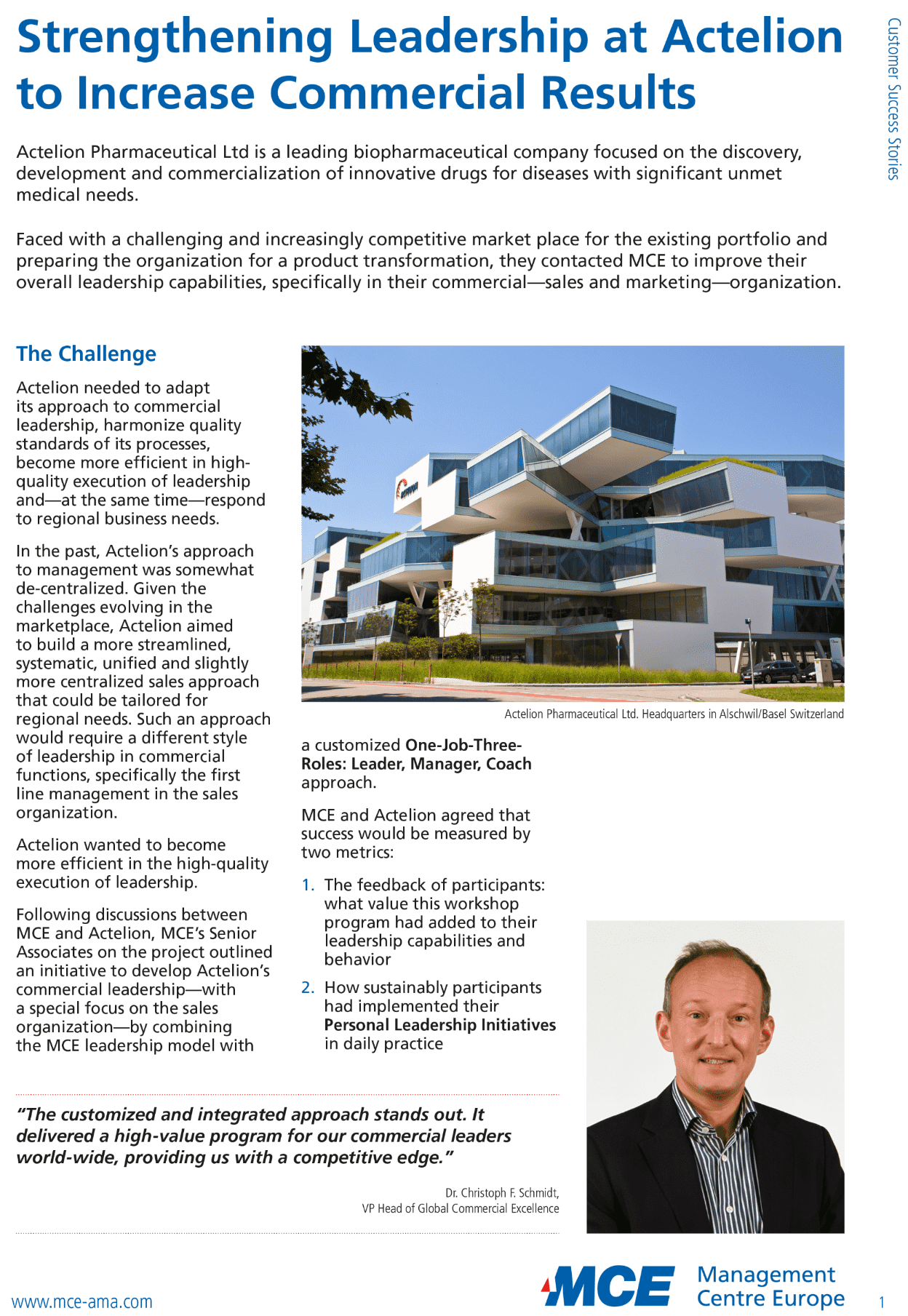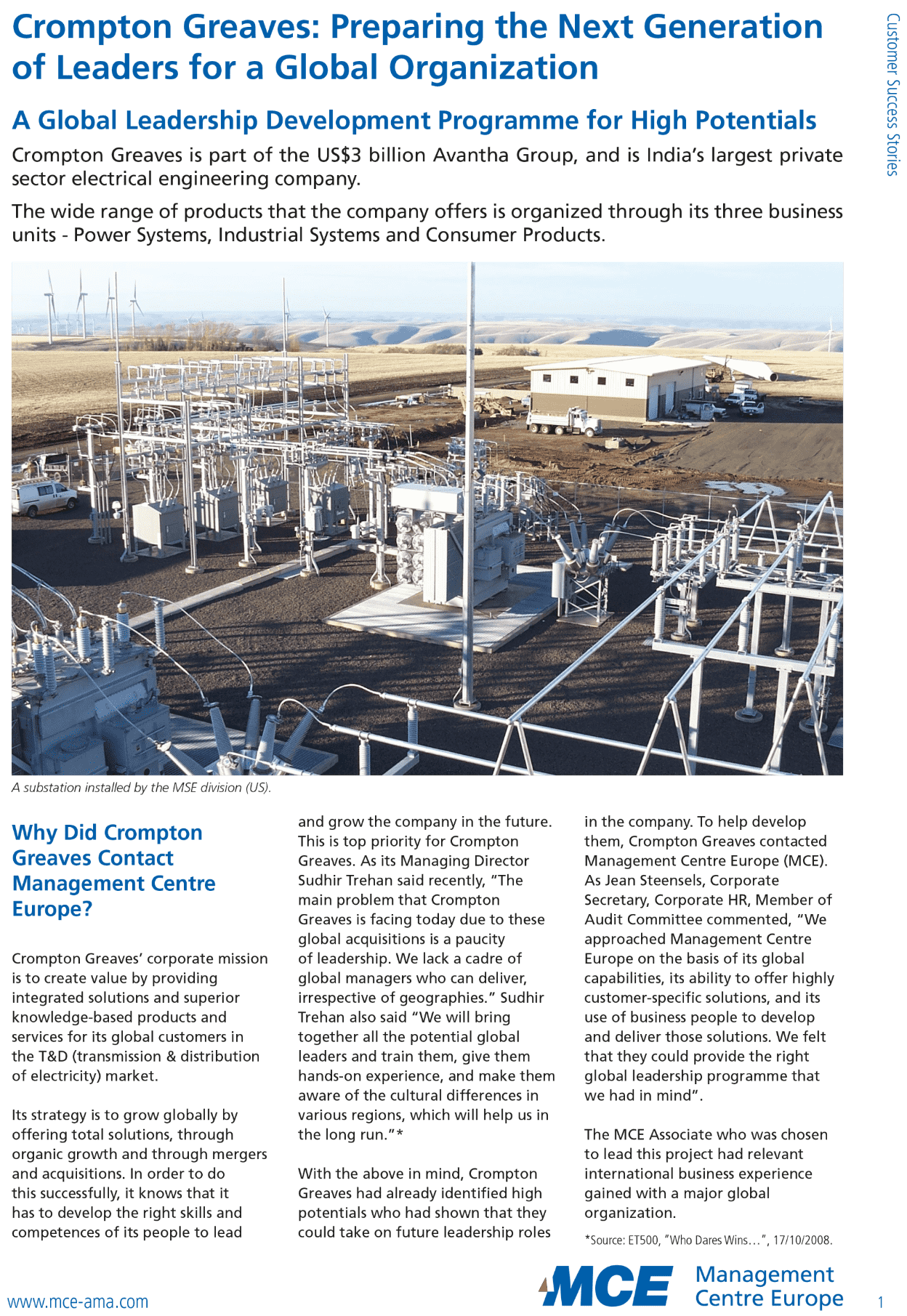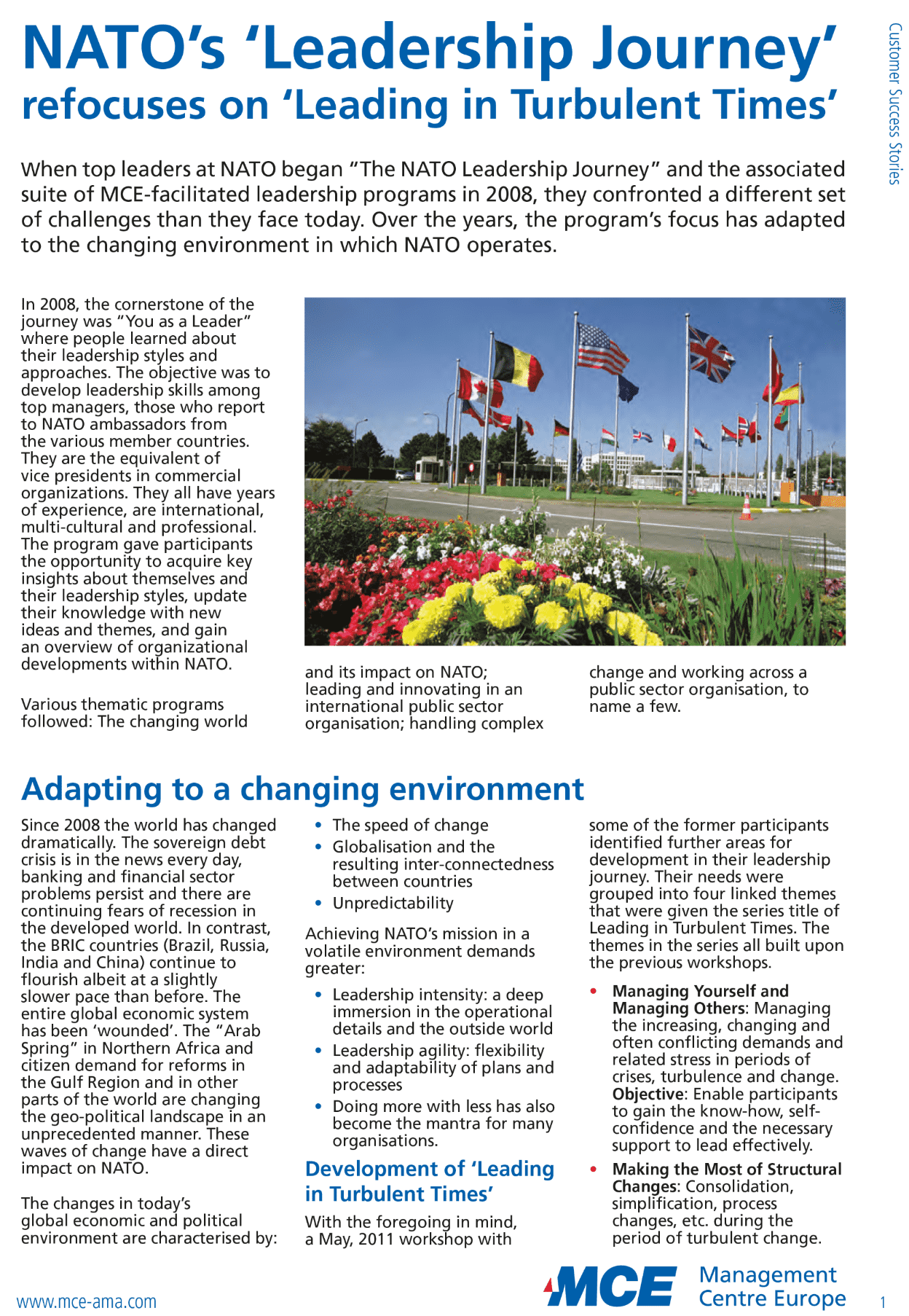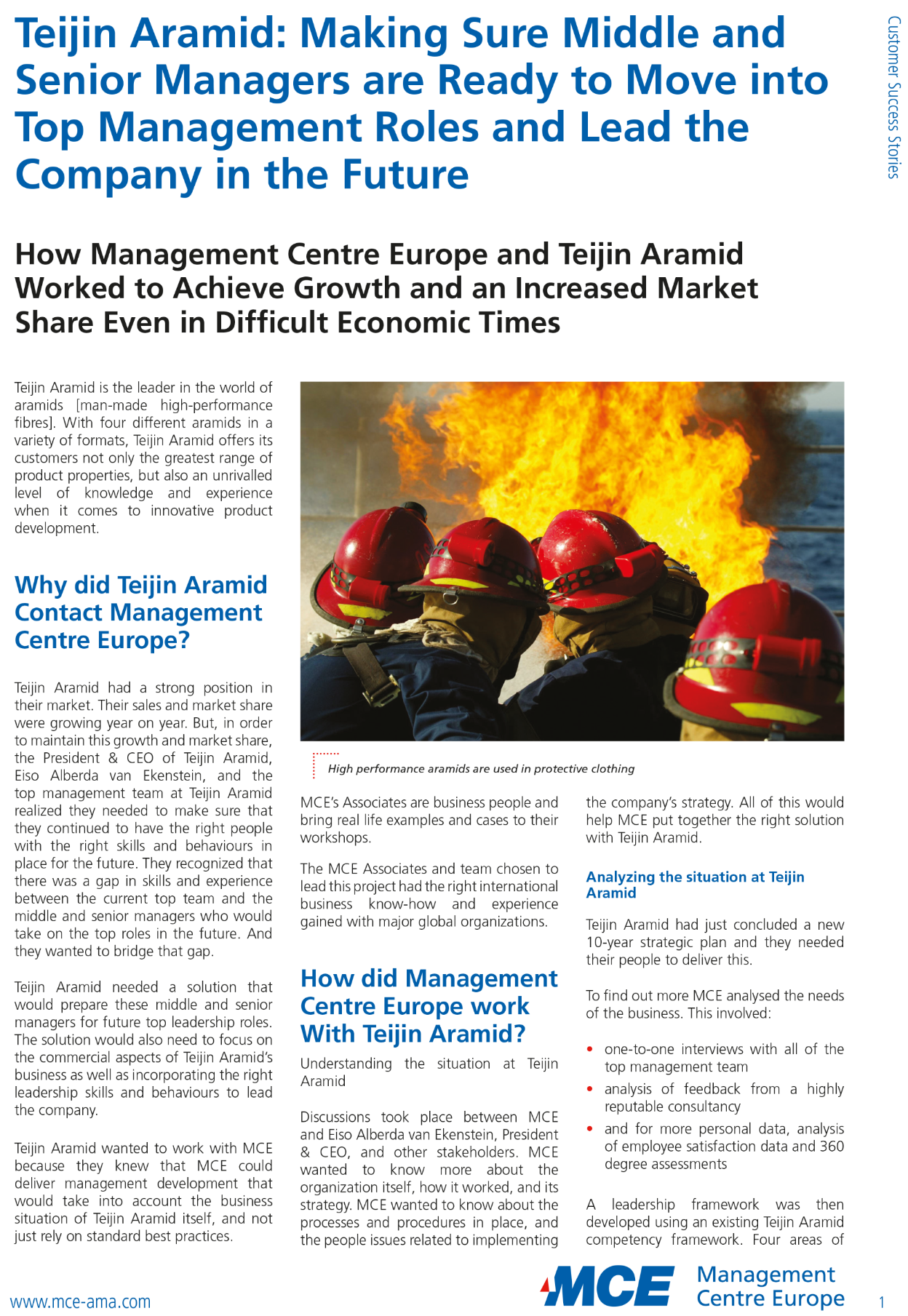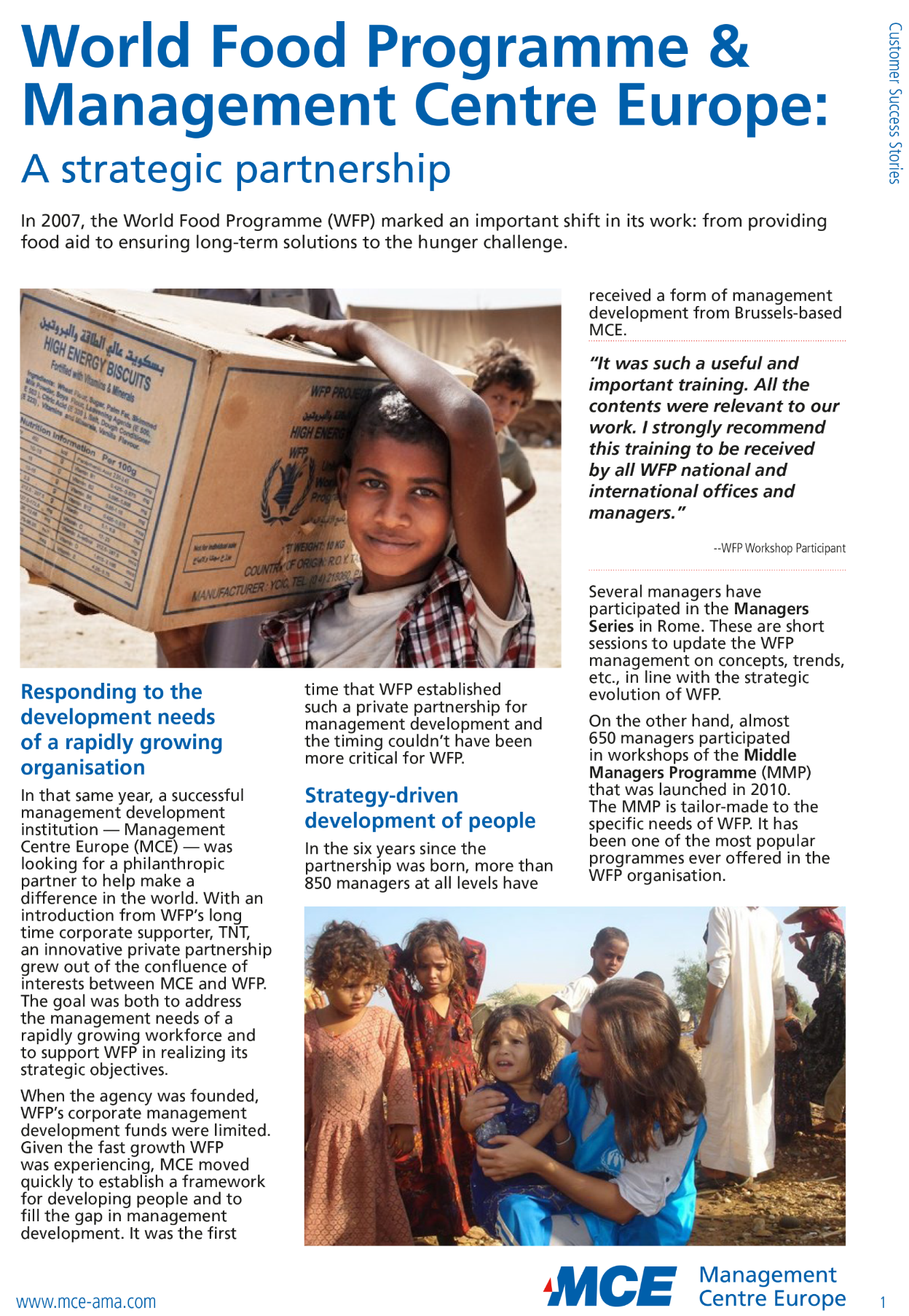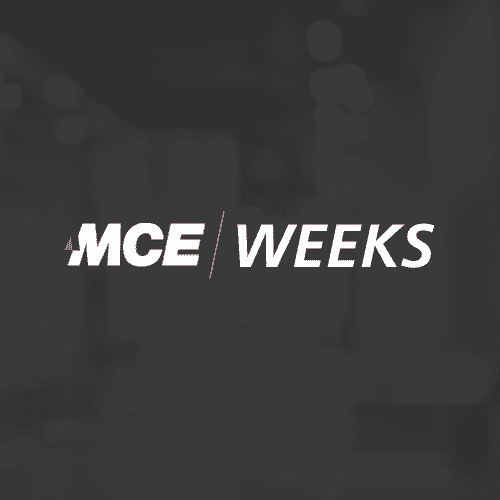
Overview
Learn more
Get the key skills you need to manage and motivate your team. Also learn how to delegate to become a great all-round manager. This week will give you a deeper input into the essentials of finance to succeed in your everyday role.
HIGHLIGHTS:
• Learn how to use clear goal setting and professional feedback to manage your team on a daily basis
• Learn how to “think finance” and translate performance into financial terms
• Make smarter decisions based on financial reports and data
KEY COMPETENCIES:
• Delegation strategies
• Coaching skills
• Performance management
• Understanding financial ratios
• Cost analysis & profit planning
• Capital expenditure analysis
The Right Programme for you
You have a team of 3 or more people and want to improve your management skills, and you aim to understand financial reports, budgets, ratios, and make better decisions using the right data.
• Business Professionals
• New Managers
• Managers
Learn, Practice and Use
• Understand your management roles and responsibilities
• Improve communication with your team & set expectations for you and your direct reports
• Adapt your management style to meet the needs of individual team members
• Communicate organizational goals that get results
• Use effective coaching techniques to maximize your team’s performance
• Understanding and using the conversational triangle in your management role
• Get a better understanding of the numbers side of your job
• Develop proactive working relationships with finance professionals
• Gain greater confidence with a working knowledge of business financials
• Understand the business dynamics of cash —and take initiatives that meet your team’s, department’s or company’s short and long-term goals
• Take the guesswork out of your decision-making and use financial data to deliver a better bottom line
• Understand the role of budgeting and issues that budgets can solve
Programme Modules
What will you learn and practice?
Management & Business Finance is a highly interactive programme with exercises and role plays
1. Defining Your Role as a Manager
- Discovering the qualities and abilities required for effective management
- Identifying the roles and responsibilities managers perform
- Exploring the contextual issues and challenges that new managers face today
2. Continuous Performance Management
- Defining the goal of performance management
- Identifying the process and challenges
- Practicing the skills of performance management
3. Communication: Conducting Effective Work Conversations
- Describe the importance of communication to effective management.
- Recognizing the qualities of effective communication.
- Understanding the process of communication and the barriers that can derail it.
- Recognizing different types of work conversations.
- Identifying the two key conversation skills.
- Understanding and utilizing the conversational triangle
4. Coaching for Performance
- Identifying the importance of and requirements for coaching
- Learning the micro-skills of effective coaching
- Confronting problem behaviours in a tactful manner
- Using the AMA Guide to manage a coaching discussion
- Differentiating between coaching and disciplining
5. Building a Motivational Climate
- Recognizing the manager’s role in employee motivation
- Exploring important elements of the motivational process
- Utilizing managerial practices for building a motivational climate
6. Delegating for Growth and Development
- Describing the types of delegation that managers can engage in
- Identify the importance of, and the barriers to, effective delegation
- Assessing your current delegation practices and their challenges
- Recognizing what can and can’t be delegated
- Identifying the phases of effective delegation
- Practicing delegation discussion
7. Basic Accounting Concepts
- The Importance of the Accounting Equation
- The Accrual Process
- The Difference Between Accounting Profit and Cash Flow
8. Understanding Financial Statements
- Understand the Purpose of and Terminology Associated with the Following Financial Statements
- Income Statement or Profit and Loss Statement (P&L):
- Balance Sheet
- Statement of Retained Earnings
- Cash Flow Statement
- Prepare a Set of Simple Financial Statements
- Understand the Accounting Process, from the Recording of Business Transactions to the Preparation of Financial Statements
- Understand How Various Business Transactions Affect the Financial Statements
9. Reviewing an Annual Report
- Various Components of an Annual Report
- Importance of Notes in Evaluating Financial Statements
- External Auditor’s Role and the Significance of the Opinion Letter
10. Evaluating a Company’s Financial Statements
- Calculate the Key Financial Ratios Using the Financial Statements
- Use Financial Ratios to Evaluate:
- An Organization’s Liquidity, Leverage and Profitability
- The Performance of an Organization as Compared to Its Competitors’
- An Organization’s Performance Compared with Budgeted Goals
- Identify Sources of Financial Information Beyond the Financial Statements
- Use the Dupont Formula to Evaluate Management Performance
- Use the Concept of Economic Value Added (EVA(R)) and Cash Flow Return on Investment (CFROI) to Determine if a Segment of an Organization Is Adding Value to the Business
11. Improving Profitability Through Cost Analysis and Profit Planning
- Differentiate Between Fixed and Variable Costs
- Help Your Organization Improve Profitability Through the Use of:
- Break-Even Analysis
- Contribution Margin Analysis
- Direct Costing in Appropriate
- Understand Traditional Cost Accounting and Its Limitations
- Understand the Relevance of Activity-Based Costing in Today’s Business Environment
12. Capital Expenditure Analysis
- Distinguish Between Capital Expenditure Budgets and Operating Budgets and Understand the Function of the Capital Budget
- Understand Why Cash Has a Time Value
- Recognize and Apply Different Methods of Evaluating Capital Expenditure and Monitoring Project Performance
13. Budgeting More Effectively
- Understand the Role of Budgeting and Issues That Budgets Can Solve
- Understand the Budgeting Process
- Identify Different Types of Budgeting Systems in Use Today
- Analyze Budgets for Different Purposes
- Recognize and Apply Different Methods of Evaluating and Monitoring Operating Performance
Testimonials
“ It is a perfect possibility to connect with people from different industries, who are dealing with the same issues.”
Agata Kulik, Product Manager Special Salts, Jungbunzlauer Ladenburg GmbH, Germany
“ Facilitator, content, tools, methods, room were very good and fitted to the participants and their needs.”
Andreas Armenat, Head of Production, GO Generics & Standard Solutions, Fresenius Kabi AG, Germany
“Very interesting topics, international and multicultural environment. Very professional coach.”
Alessandro Foresio, Vice President, Logic S.p.A., Italy
“The subjects covered were extremely relevant and gave input to my personal development.”
Rosa Karen Schmidt, Senior VP-Assistant, Novo Nordisk, Denmark
FAQ
ABOUT MCE’s OPEN ENROLMENT PROGRAMMES
What time does the programme start and finish?
MCE programmes start at 9:00 and finish at 17:00. Lunch is a 1-hour break and there are two coffee breaks too. On the last day, the programme finishes at 16:30 as we know a lot of people have to catch planes and trains.
What should I wear (dress code) when participating in an MCE Programme?
Most participants wear Business Casual clothes. A formal business suit is not necessary.
Are there MCE approved/recommended hotels?
Yes, each programme has recommended hotels that have the best rates. We include details of these hotels in your registration pack.
Are meals included? I don’t eat certain food. Can I order special meals?
Lunch is provided every day and we always organize a buffet so you have a good choice of foods to cater for different needs.
Are there evening activities?
Your evenings are free, although there some exceptions (e.g. On the MCE Leadership Development Programme there is an activity on day 3)
Is there a free Wi-Fi?
For programmes at MCE in Brussels, there is free Wi-Fi throughout the building. For other locations, the services can vary, but in most locations we have organized free Wi-Fi.
What level of English do I need to take part in an MCE Programme?
MCE’s participants come from over 90 different countries but all of our open enrolment programmes are run in English. You need to have a good working knowledge of English to be able to fully participate in the programme and network with other participants. If you have difficulty understanding these questions, the programme might be difficult for you too.
Will I get a certificate at the end of the programme?
Yes, a certificate of attendance is provided to you upon successful completion of the programme.
CONTENT OF MCE’S OPEN ENROLMENT PROGRAMMES
Are MCE programmes certified by an official body/organization?
10 of MCE’s top selling programmes are approved by Project Management Institute and you can find more information on these programmes here.
What is the MCE approach to learning and development?
All of MCE’s Open Enrolment programmes are based on MCE’s FEEL-THINK-DO and 70-20-10 principles to enable effective learning transfer.
Who designs MCE programmes?
Our Portfolio team together with the core MCE Senior Associates design all of our programmes based on the ROPES model.
Are MCE’s Programmes practical?
MCE’s programmes are all designed to allow to practice what you have learnt. So you will have lots of time to practice, practice and practice.
REGISTRATIONS, PAYMENTS AND FEES
Are VAT rates included in the price?
The price advertised in this page is VAT excluded and applicable to clients and companies legally based in the European Union.
All clients outside the European Union (EU), e.g. Middle East, Africa, Asia and America, are exempt from VAT rates. For them, the price advertised here is the final price to be paid.
- One exception: Training Programmes in France. All clients (inside or outside the European Union) following training programmes in France are liable to 20% VAT rates in all cases.
When are VAT rates applicable to me?
In the case of clients and companies legally based in the European Union, VAT rates will be added to the price in the following cases:
- If the client is a natural person (B2C) without a VAT number. 21% VAT applicable.
- If the training programmes runs in France: 20% VAT applicable.
- Also applicable to clients outside the European Union (EU)
- Except when
- The client is VAT-exempt
- If the client is legally registered in Belgium (independent from where in Europe the training programme is followed): 21% VAT applicable.
- Except when:
- The client attend the training programme in France: 20% VAT applicable instead.
- The client is VAT-exempt
- If the client does not provide a corporate VAT number or does not have any VAT number: 21% VAT applicable (Only applicable to clients in the EU).
- Except when:
I don’t have approval from my finance team yet, can I make a tentative registration?
Yes, simply contact us and we will hold a place for you.
Is hotel accommodation included in the programme fee?
No, participants are expected to arrange their own accommodation and travel. The Programme fee covers the programme attendance, materials, lunches & refreshments.
Does MCE give discounts or grants for individual registrations?
MCE works mostly with companies and organizations and we can provide corporate deals for group bookings or preferred supplier deals. If you would like to discuss a corporate deal, we will be happy to talk to you.
Can I pay with my corporate credit card?
Yes, you can. We accept VISA, Mastercard and Amex.
Does MCE have corporate deals/frameworks available?
Yes, we have. Please contact us for more information.
Can I cancel or change my booking free-of-charge?
At MCE, we understand that business people have commitments and changes do happen. So you can cancel or change your registration up to 21 days before the programme starts without any fees or charges. After that date, you will need to pay full fees, but you are allowed to transfer once to a new programme date.
The MCE Team is ready to answer any questions you have. Please contact us by phone, email, contact form or even website chat. We would be happy to talk to you!


